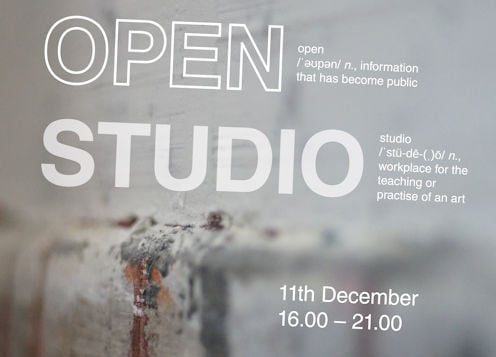Gabriel Homa, Solutions Architect & BSc (Hons) Computing student
By Larissa Petryca on 29 April 2022 11:04
Last updated on 17 December 2024 12:12
Gabriel works full-time as a Solutions Architect at HTD in Prague and is studying for his Bachelor’s in Computing, whist based in Ostrava in the Czech Republic. We spoke with him to find out why he chose to study at PCU, and how he's managed his studies while working full-time.
Professional Experience
Gabriel is a self-taught IT specialist. He had previously studied mathematics and computer science, but was able to find work without a qualification due to his in-demand technical skills and ability to find solutions to complex issues.
He has worked extensively in IT and prior to the pandemic was living and working in Germany as a Global Consultant for Europe, Middle East and Africa with Red Hat, the open source solutions giant. In his role he travelled extensively, but when the pandemic put a freeze on traveling his position became grounded and so he decided to return to the Czech Republic.
Looking For Opportunities Abroad
Gabriel has a strong desire to emigrate to the USA and pursue his dream career in the Services segment of the tech industry. He recognised the need to formalise his professional experience with a recognised Bachelor degree which is essential for securing a working visa. High level occupations also demand it, with HR automatically filtering out applicants who do not have a tertiary qualification.
Why PCU?
Gabriel had tried another university’s blended programme while working, but it did not have the right solutions or proper support that would enable him to properly manage both work and studies. So after googling ‘Best universities to study at whilst working’ Gabriel found PCU.
He strongly agrees that PCU’s Blended programmes are truly designed for working people. The essential factors are that classes take place over weekends and that PCU Lecturers are very communicative and correspond quickly, event outside of work hours.
Most importantly, PCU recognised not only his prior studies, but also his extensive work experience, something that Czech universities do not. This will enable him to complete his Bachelor’s in three semesters.
Global Blended is truly designed for working people. Classes take place over weekends and Lecturers are very communicative and correspond quickly. Most importantly, PCU recognised not only prior studies, but also work experience so I will be able to complete my Bachelor’s in three semesters.

Many Advantages
This individualised study path is very advantageous when compared to studying at a Czech University equivalent. Through his research Gabriel found that Czech blended programmes usually require attendance on a weekday,and when adding in his travel from Ostrava he realised he would lose a lot of work time and money.
In addition, as a student approaching 26 years of age, he would be subject to fees at a Czech University. Although PCU is more expensive, once you account for the difference in salary potential having studied in English, plus the fact that mid-level IT positions do not usually allow for regular time off mid-week, and the recognition of work experience for credit, it is clear that PCU is an indisputable winner.
You’ve climbed high enough without a degree, now you need it, but as an older person you have bills and expenses to pay, so the investment has to be worth it. I’m definitely getting good value for the money at PCU.
How does Blended format work?
Gabriel has found the programme loosely structured, essentially to fit him as a working person. He finds the lecturers very communicative and open to discussion, due to these one-on-one exchanges he can often wrap a 3 hour session into 1 hour and then work independently. He has found that the university offers all the supportive mechanisms that he needs and his lecturers serve as points of contact for areas that he may be less familiar with or needs refresher info on. Their professional specializations also gives him additional insight outside his role as a Solutions Architects.
Gabriel chooses to study over weekends as it’s much easier to set aside than weekdays. The communication with lecturers is also flexible, with lecturers quick to respond even on weekends.
Residential Weekends
Blended programmes also involve on-campus weekend sessions of a number of weekends per semester. This enables him the chance to meet fellow working students. The face-to-face interaction helps fuel debate and discussion and helps the class divide up group project roles as you can better work out an individual’s strengths.

International Environment
Gabriel sees diversity is one of the biggest strengths that PCU has. He has classmates for example from; Morocco, Ukraine, South Africa and Russia. The international perspectives make interactions all the more interesting and he appreciates their views especially as his workplace is Czech only. The interactions remind him of his time working in a global role and helps build interpersonal skills, better preparing him for an international workplace.
Does blended learning work for students outside of Prague?
Gabriel would definitely recommend PCU to IT professionals working in Europe. He sees it as particularly advantageous for expats with a working visa as they are also allowed to study.
It makes good economic success to invest in a higher tertiary qualification while simultaneously developing your professional career as it really helps you confidently make your move to the next level.
Visit PCU’s Global Blended Degrees webpage to find out more details.
- School of Art, Design & Media (433)
- Student Life (331)
- School of Business, Management & Technology (268)
- Global Engagement (141)
- Research & Creative Practice (95)
- Seminars & Workshops (73)
- Master Speakers Series (70)
- Exhibitions (69)
- New Students (64)
- Academic Partners (58)
- Alumni (58)
- Living Futures (52)
- Graduation (47)
- Visiting Artist Lecture Series (44)
- Conferences (37)
- Digital Campus (22)
- Professional Partners (14)
- Study Exchanges (14)
- University News (11)
- Industry Network (9)
- School of Education (9)
- Media Innovation Technology Series (8)
- Press Release (8)
- Erasmus+ (3)
- Student Societies (1)
- May 2025 (2)
- April 2025 (4)
- February 2025 (4)
- January 2025 (5)
- December 2024 (2)
- November 2024 (1)
- October 2024 (2)
- September 2024 (6)
- August 2024 (4)
- July 2024 (4)
- May 2024 (1)
- April 2024 (1)
- March 2024 (2)
- February 2024 (1)
- January 2024 (3)
- December 2023 (1)
- November 2023 (3)
- October 2023 (1)
- September 2023 (1)
- August 2023 (1)
- July 2023 (2)
- June 2023 (1)
- April 2023 (2)
- March 2023 (2)
- February 2023 (3)
- January 2023 (2)
- December 2022 (5)
- November 2022 (3)
- September 2022 (4)
- August 2022 (2)
- July 2022 (2)
- June 2022 (1)
- May 2022 (7)
- April 2022 (5)
- March 2022 (5)
- February 2022 (3)
- January 2022 (1)
- December 2021 (7)
- November 2021 (8)
- October 2021 (6)
- September 2021 (5)
- August 2021 (8)
- July 2021 (3)
- June 2021 (3)
- May 2021 (2)
- April 2021 (5)
- March 2021 (3)
- February 2021 (4)
- January 2021 (2)
- December 2020 (5)
- November 2020 (8)
- October 2020 (2)
- September 2020 (3)
- August 2020 (1)
- July 2020 (3)
- June 2020 (4)
- May 2020 (7)
- April 2020 (6)
- March 2020 (5)
- February 2020 (2)
- January 2020 (7)
- December 2019 (5)
- November 2019 (12)
- October 2019 (9)
- September 2019 (6)
- July 2019 (1)
- June 2019 (1)
- May 2019 (14)
- April 2019 (10)
- March 2019 (7)
- February 2019 (16)
- January 2019 (8)
- December 2018 (2)
- November 2018 (6)
- October 2018 (10)
- September 2018 (3)
- August 2018 (2)
- July 2018 (3)
- June 2018 (10)
- May 2018 (12)
- April 2018 (9)
- March 2018 (5)
- February 2018 (3)
- January 2018 (8)
- December 2017 (4)
- November 2017 (9)
- October 2017 (7)
- September 2017 (3)
- July 2017 (4)
- June 2017 (3)
- May 2017 (8)
- April 2017 (8)
- March 2017 (13)
- February 2017 (11)
- January 2017 (6)
- December 2016 (3)
- November 2016 (18)
- October 2016 (9)
- September 2016 (8)
- August 2016 (4)
- July 2016 (9)
- June 2016 (3)
- May 2016 (6)
- April 2016 (5)
- March 2016 (78)
- February 2016 (4)
- January 2016 (4)
- December 2015 (6)
- November 2015 (9)
- October 2015 (5)
- September 2015 (6)
- August 2015 (1)
- July 2015 (4)
- June 2015 (1)
- May 2015 (3)
- April 2015 (11)
- March 2015 (6)
- February 2015 (6)
- January 2015 (6)
- December 2014 (1)
- November 2014 (17)
- October 2014 (4)
- September 2014 (8)
- August 2014 (5)
- July 2014 (1)
- June 2014 (10)
- May 2014 (25)
- April 2014 (32)
- March 2014 (53)
- February 2014 (25)
- January 2014 (10)
- December 2013 (10)
- October 2013 (1)
- September 2013 (1)
- July 2013 (4)
- June 2013 (2)
- March 2013 (2)
- February 2013 (74)
- January 2013 (6)
- December 2012 (13)
- November 2012 (3)
- October 2012 (5)
- September 2012 (156)
- July 2012 (1)
- November 2011 (1)
- November 2010 (1)
- November 2009 (1)
- November 2008 (4)
- September 2008 (1)
- July 2008 (1)
- June 2008 (4)
- May 2008 (2)
- April 2008 (3)
- March 2008 (2)
- February 2008 (1)
- December 2007 (1)
- October 2007 (1)
- August 2007 (1)
- July 2007 (1)
- June 2007 (4)
- May 2007 (1)
- April 2007 (2)
- March 2007 (3)
- January 2007 (1)
- November 2006 (1)
- December 2005 (1)
- November 2005 (1)
- October 2005 (1)
- August 2005 (1)
- May 2005 (1)
You May Also Like
These Related Articles

Study Break* Vol. 2

Open Studio - come and see where we work!

